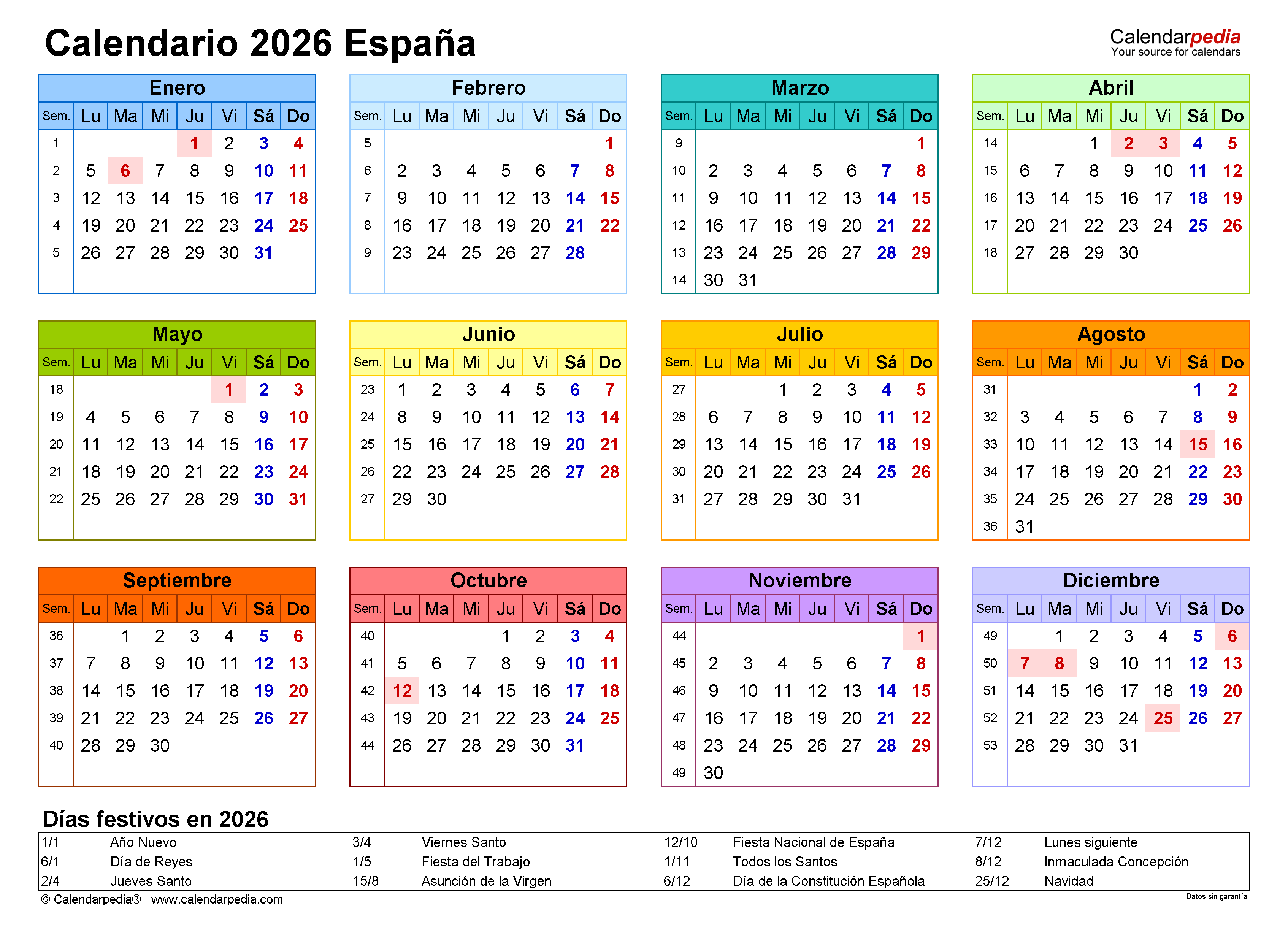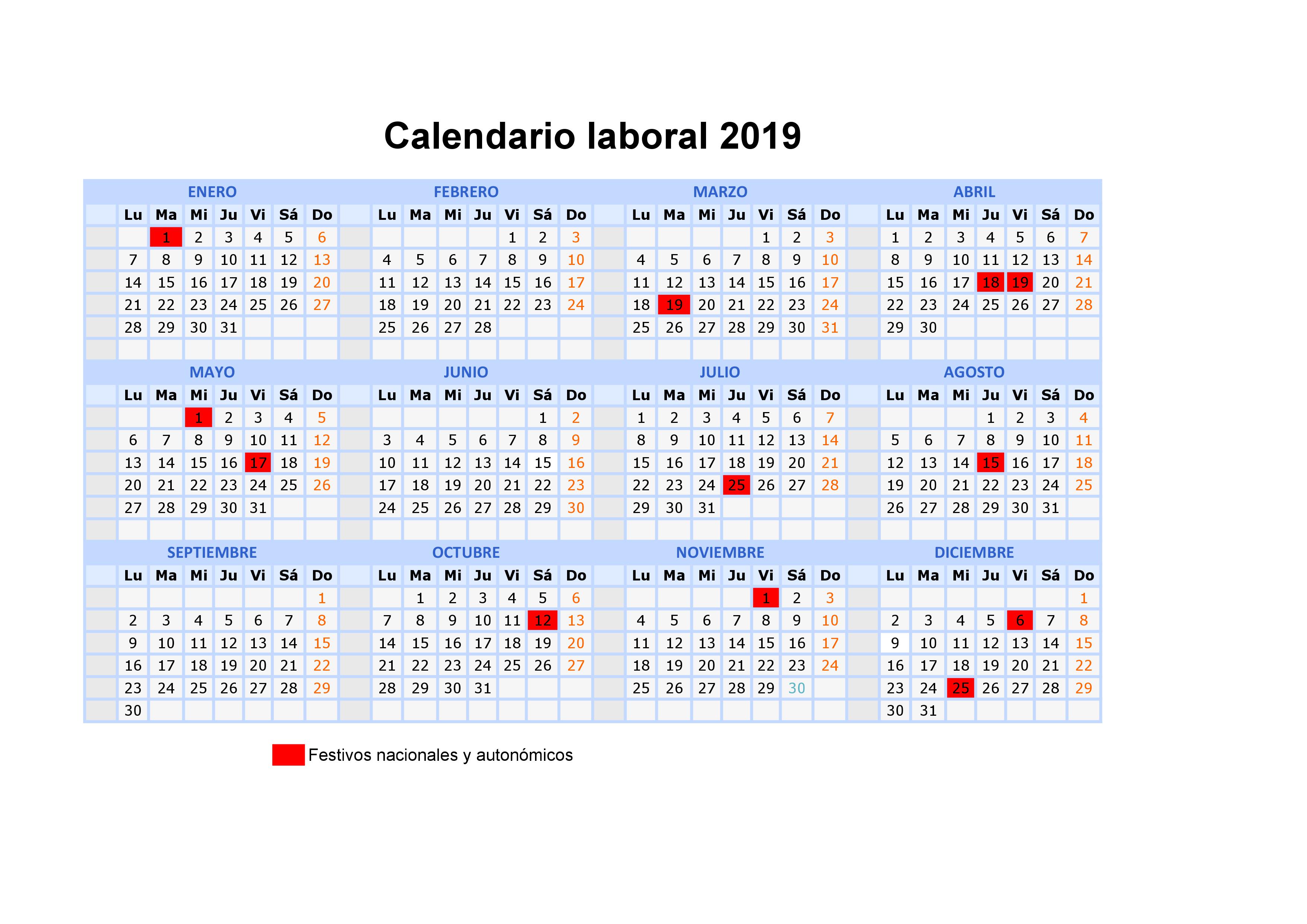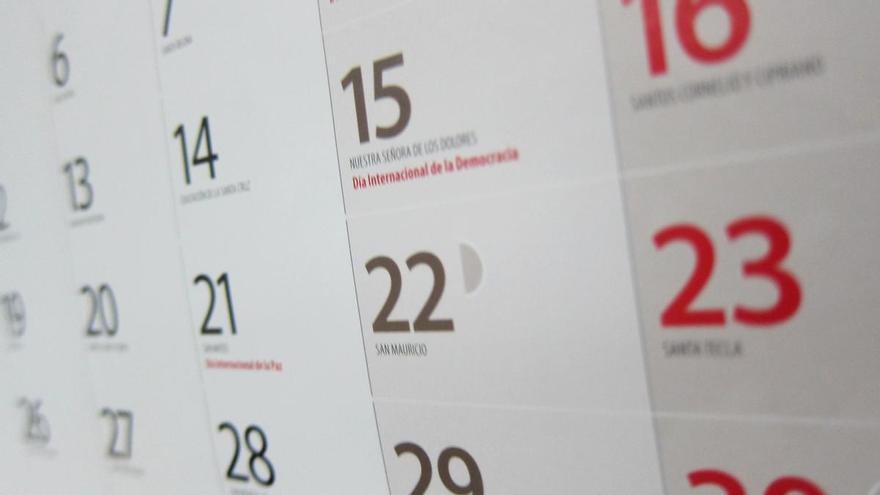Navigating the Work Calendar in Galicia: A Guide to 2026
Related Articles: Navigating the Work Calendar in Galicia: A Guide to 2026
Introduction
With great pleasure, we will explore the intriguing topic related to Navigating the Work Calendar in Galicia: A Guide to 2026. Let’s weave interesting information and offer fresh perspectives to the readers.
Table of Content
Navigating the Work Calendar in Galicia: A Guide to 2026

The "Calendario Laboral" or work calendar, is a crucial document for any individual or organization operating within the autonomous community of Galicia, Spain. It outlines the official holidays and non-working days for a given year, providing a clear framework for planning work schedules, business operations, and personal activities. This article delves into the intricacies of the 2026 Galicia work calendar, offering a comprehensive understanding of its structure, key dates, and implications.
Understanding the Framework
The 2026 Galicia work calendar is shaped by a combination of national, regional, and local regulations. It incorporates:
- National Holidays: These are days of national significance, observed throughout Spain. Examples include Christmas Day, New Year’s Day, and the Feast of the Immaculate Conception.
- Regional Holidays: Galicia, like other autonomous communities, has its own set of holidays that reflect the region’s cultural and historical heritage. These may include religious festivals, local patron saint celebrations, or historical commemorations.
- Local Holidays: Certain municipalities within Galicia may declare additional holidays specific to their area, further contributing to the diversity of the work calendar.
Key Dates to Remember
While the precise dates for regional and local holidays can vary slightly from year to year, the 2026 Galicia work calendar is expected to include the following key dates:
National Holidays:
- January 1st: New Year’s Day
- January 6th: Epiphany
- March 19th: Saint Joseph’s Day
- April 10th: Good Friday
- April 11th: Easter Monday
- May 1st: Labor Day
- August 15th: Assumption of the Virgin Mary
- October 12th: National Day of Spain
- November 1st: All Saints’ Day
- December 8th: Immaculate Conception
- December 25th: Christmas Day
Regional Holidays:
- January 6th: Epiphany (Galicia)
- March 19th: Saint Joseph’s Day (Galicia)
- June 24th: Saint John’s Day (Galicia)
- July 25th: Santiago Apostle’s Day (Galicia)
- August 15th: Assumption of the Virgin Mary (Galicia)
- December 8th: Immaculate Conception (Galicia)
Local Holidays:
The specific local holidays will vary depending on the municipality. It is recommended to consult the official calendars published by individual town councils or the Galician government website for precise information.
Implications for Businesses and Individuals
The 2026 Galicia work calendar has significant implications for various stakeholders:
Businesses:
- Planning and Scheduling: The calendar provides a clear framework for businesses to plan their operations, including production schedules, staffing arrangements, and customer service availability.
- Employee Relations: Understanding the holiday schedule allows businesses to effectively communicate with employees about time off, ensuring fair treatment and minimizing potential disruptions.
- Marketing and Sales: The calendar can inform marketing campaigns and sales strategies, enabling businesses to capitalize on holiday periods or adjust their activities around non-working days.
Individuals:
- Personal Planning: The calendar enables individuals to plan their vacations, social events, and other personal activities around official holidays and non-working days.
- Travel and Leisure: The holiday schedule can influence travel plans, as certain periods may see increased tourism or higher prices due to the influx of travelers.
- Financial Planning: Individuals can consider the impact of holidays on their work schedule and income, allowing them to plan their finances accordingly.
Frequently Asked Questions (FAQs)
Q: Are all holidays in the calendar non-working days?
A: The majority of holidays listed in the Galicia work calendar are non-working days. However, some municipalities may designate certain holidays as "festivos" (celebrated) but not "laborables" (non-working). It is crucial to consult the specific calendar for each municipality to determine which holidays are non-working days.
Q: What happens if a holiday falls on a weekend?
A: If a holiday falls on a Saturday or Sunday, it is generally not compensated with an additional day off. However, there may be exceptions depending on local regulations or collective bargaining agreements.
Q: Can businesses choose to operate on a holiday?
A: Businesses can choose to operate on a holiday, but they must ensure that their employees are compensated according to legal requirements. This may involve paying overtime, providing alternative days off, or adhering to specific agreements with labor unions.
Q: Where can I find the most up-to-date information on the Galicia work calendar?
A: The most reliable source for the latest information on the Galicia work calendar is the official website of the Galician government. You can also consult the websites of individual municipalities or labor unions for specific details.
Tips for Effective Calendar Usage
- Mark Important Dates: Use the calendar to mark key dates for your business or personal life, such as deadlines, appointments, and travel plans.
- Plan Ahead: Utilize the calendar to plan your work schedule, vacations, and other activities, ensuring you avoid scheduling conflicts with holidays or non-working days.
- Stay Updated: Regularly check for updates to the calendar, as changes may occur due to unforeseen circumstances or legislative amendments.
- Communicate Effectively: Share the calendar with employees, clients, and partners to ensure everyone is aware of the holiday schedule and can plan accordingly.
Conclusion
The 2026 Galicia work calendar is a valuable tool for individuals, businesses, and organizations operating within the region. By understanding its structure, key dates, and implications, stakeholders can effectively plan their activities, manage their resources, and navigate the year with clarity and efficiency. Staying informed about the latest updates and utilizing the calendar effectively can contribute to a smoother and more productive working environment.








Closure
Thus, we hope this article has provided valuable insights into Navigating the Work Calendar in Galicia: A Guide to 2026. We hope you find this article informative and beneficial. See you in our next article!